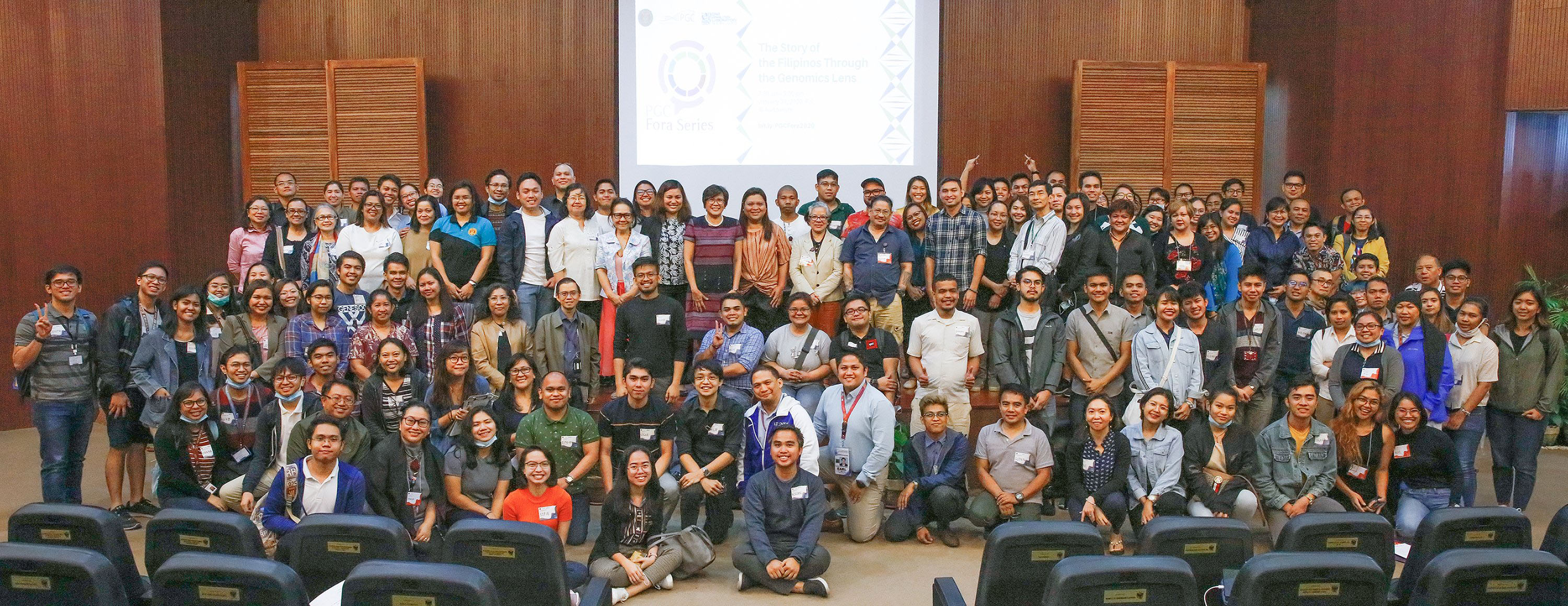On human genetics, Dr. Maria Corazon De Ungria and Jazelyn Salvador briefly described their research on the genetics of Mangyans in Mindoro and of Philippine Negritos, respectively. They are both from the DNA Analysis Laboratory (DAL), Natural Sciences Research Institute, College of Science, UPD. Meanwhile, Prof. Jae Joseph Russell Rodriguez of the Institute of Biological Sciences, College of Arts and Sciences, UP Los Baños, also in collaboration with DAL, discussed his investigation into the human genetic history of the Sulu Archipelago.
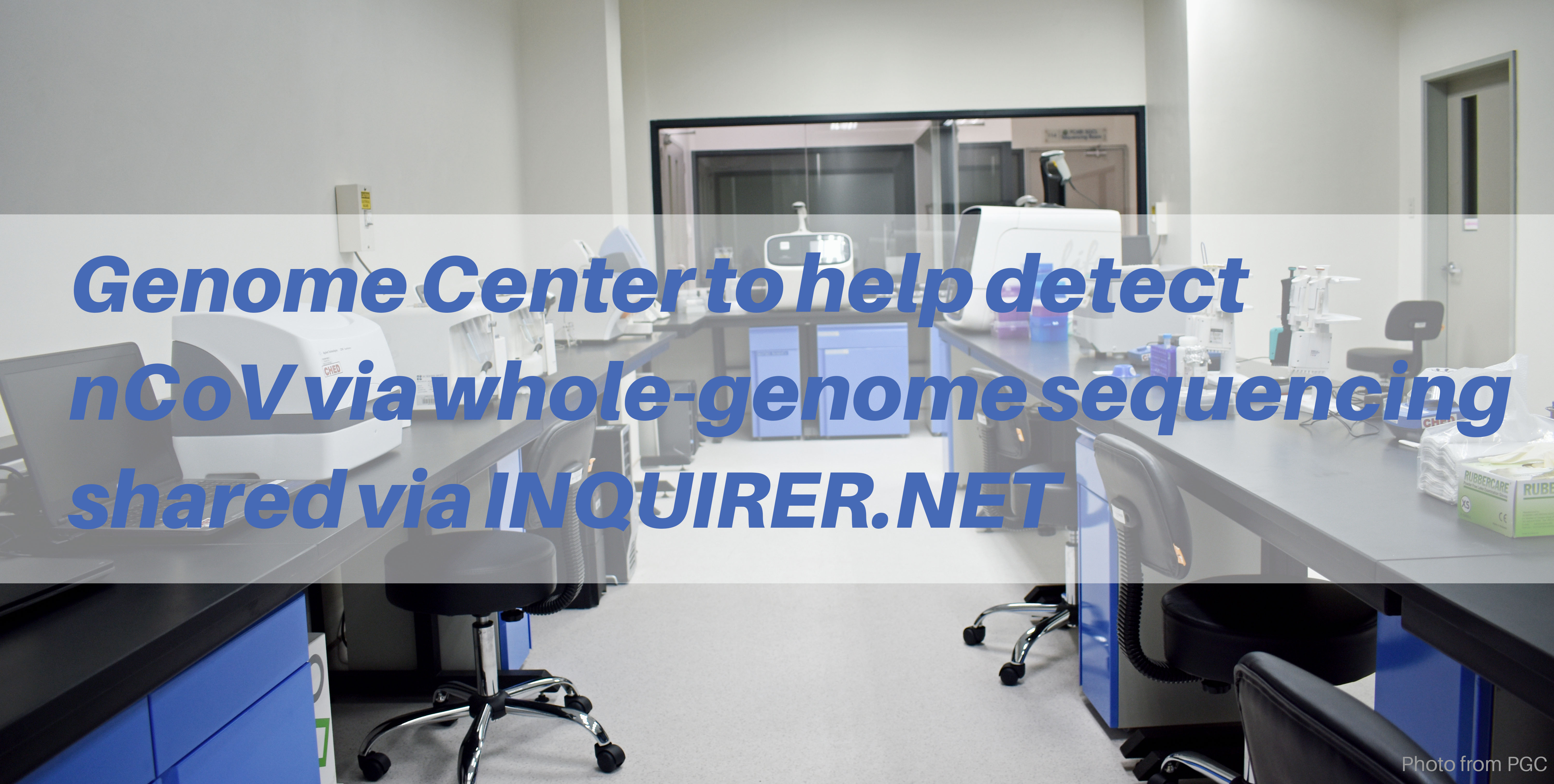
Genome Center to help detect nCoV via whole-genome sequencing
The Centers for Disease Control and Prevention (CDC) describes whole-genome sequencing as a “laboratory procedure that determines the order of bases in the genome of an organism in one process.”
According to CDC, scientists conduct data analysis, which is the fourth step of whole-genome sequencing, to compare “bacterial sequences and identify differences.”
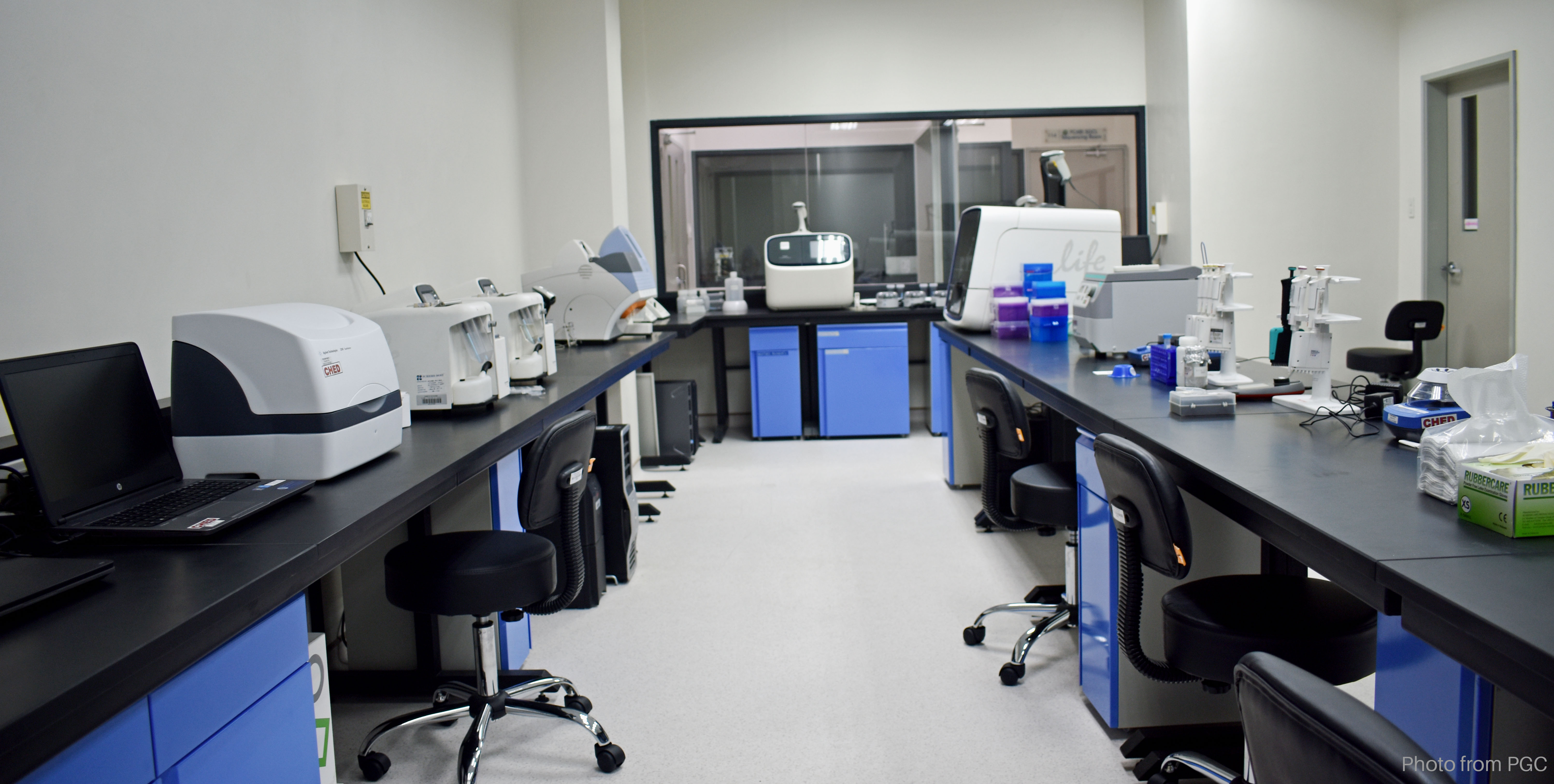
Philippine Genome Center gears up to verify presence of 2019-nCoV through whole genome sequencing
With the use of Next Generation DNA/RNA Sequencing equipment (NGS) available at the Philippine Genome Center (PGC) in the University of the Philippines Diliman Campus, the team of the DNA Sequencing Core Facility (DSCF) is ready and willing to assist RITM and the DOH in confirming suspected cases of 2019-Novel Coronavirus (2019-nCoV) in the country.
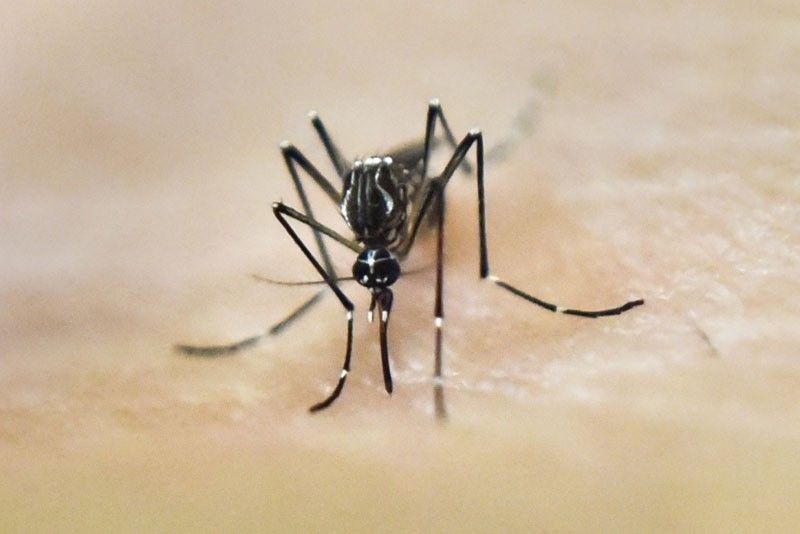
Local dengue test kit to be marketed internationally
Manila HealthTek is a spinoff company formed to pursue the commercialization of the dengue diagnostic technology developed by a team of UP Manila National Institutes of Health medical researchers led by Dr. Raul Destura.
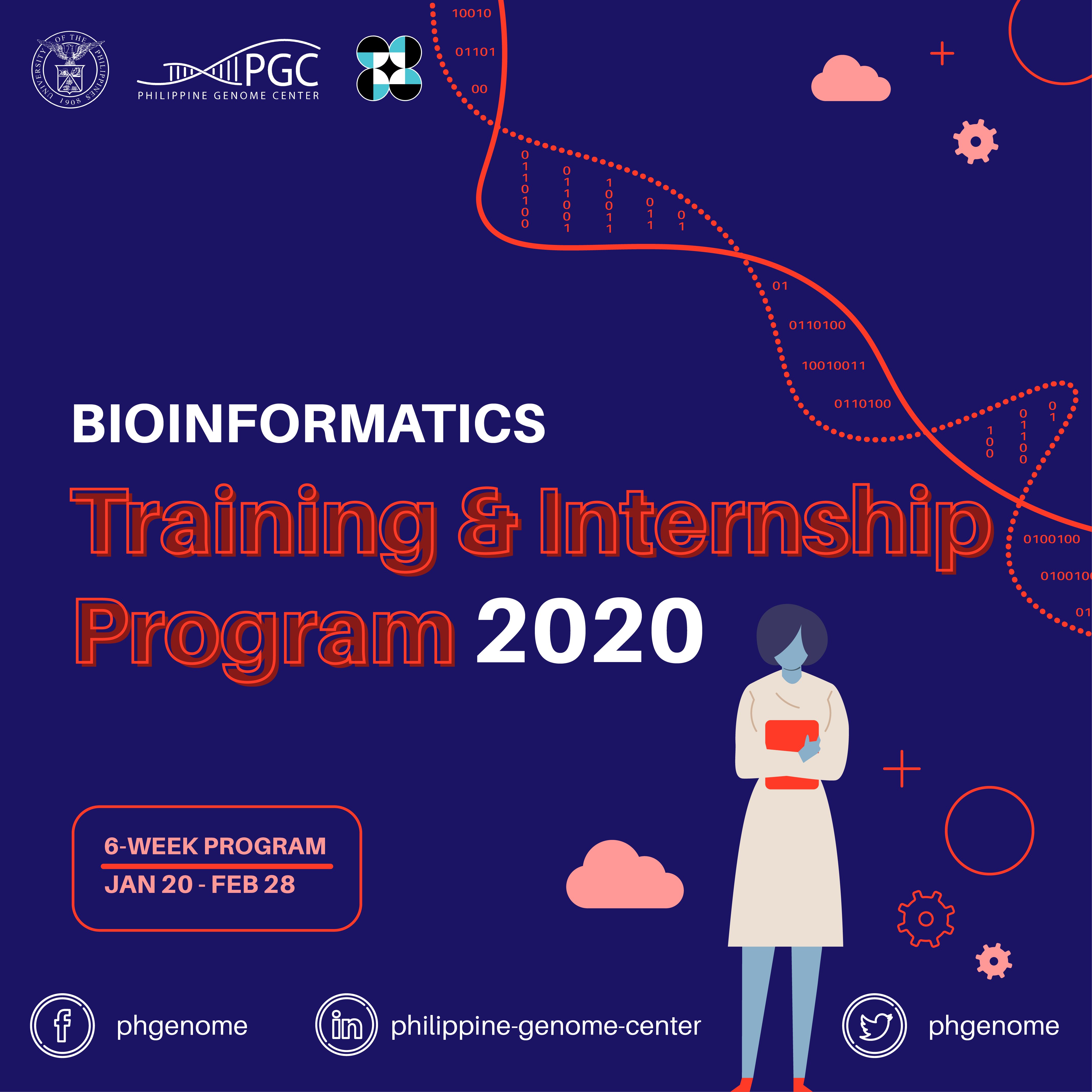
Call for applications: 2019-2020 Bioinformatics Training and Internship Program (Batch 04: Jan-Feb)
Student applicants must be undergraduate or graduate students in good academic standing, enrolled in a science or engineering course at an accredited college or university in the Philippines. Young professional applicants must have a BS degree in a science or engineering field, and be a researcher and/or faculty member employed at a research or higher education institution in the Philippines.
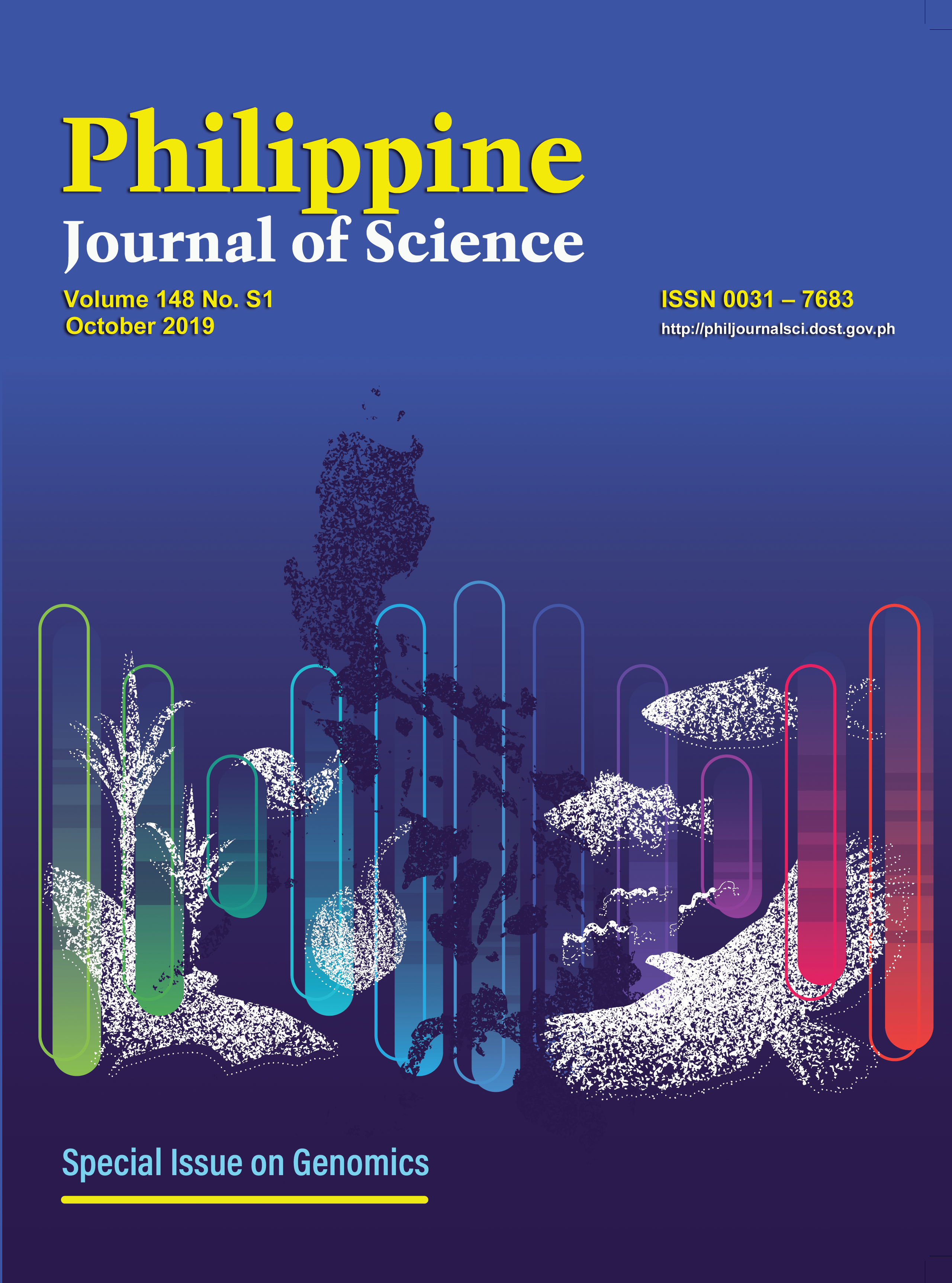
Philippine Journal of Science Special Issue on Genomics
This special issue’s cover is accompanied by the different species covered by the studies in this journal.
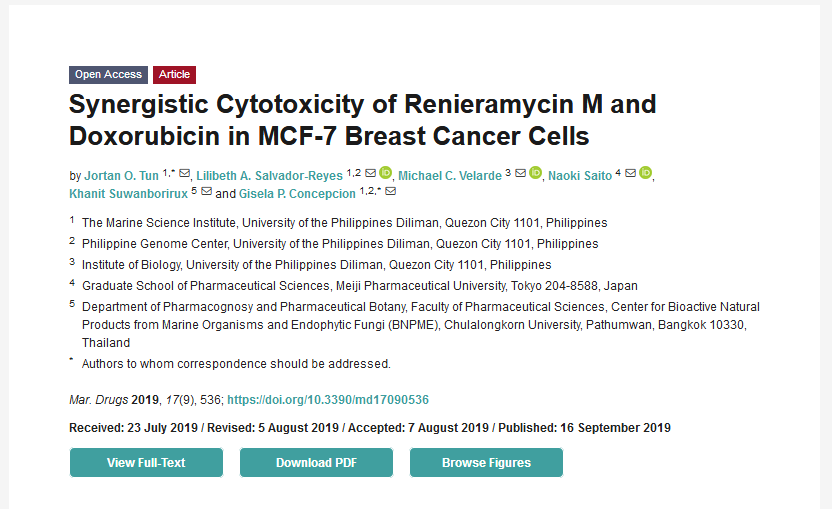
Synergistic Cytotoxicity of Renieramycin M and Doxorubicin in MCF-7 Breast Cancer Cells
Renieramycin M (RM) is a KCN-stabilized tetrahydroisoquinoline purified from the blue sponge Xestospongia sp., with nanomolar IC50s against several cancer cell lines. Our goal is to evaluate its combination effects with doxorubicin (DOX) in estrogen receptor positive MCF-7 breast cancer cells.
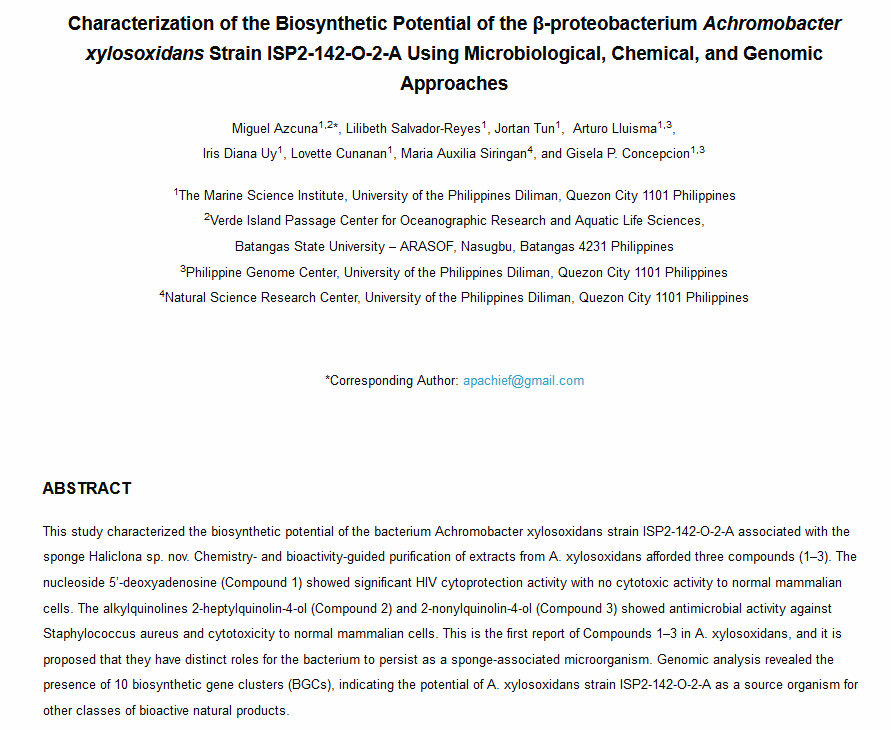
Characterization of the Biosynthetic Potential of the β-proteobacterium Achromobacter xylosoxidans Strain ISP2-142-O-2-A Using Microbiological, Chemical, and Genomic Approaches
This study characterized the biosynthetic potential of the bacterium Achromobacter xylosoxidans strain ISP2-142-O-2-A associated with the sponge Haliclona sp. nov. Chemistry- and bioactivity-guided purification of extracts from A. xylosoxidans afforded three compounds (1–3).
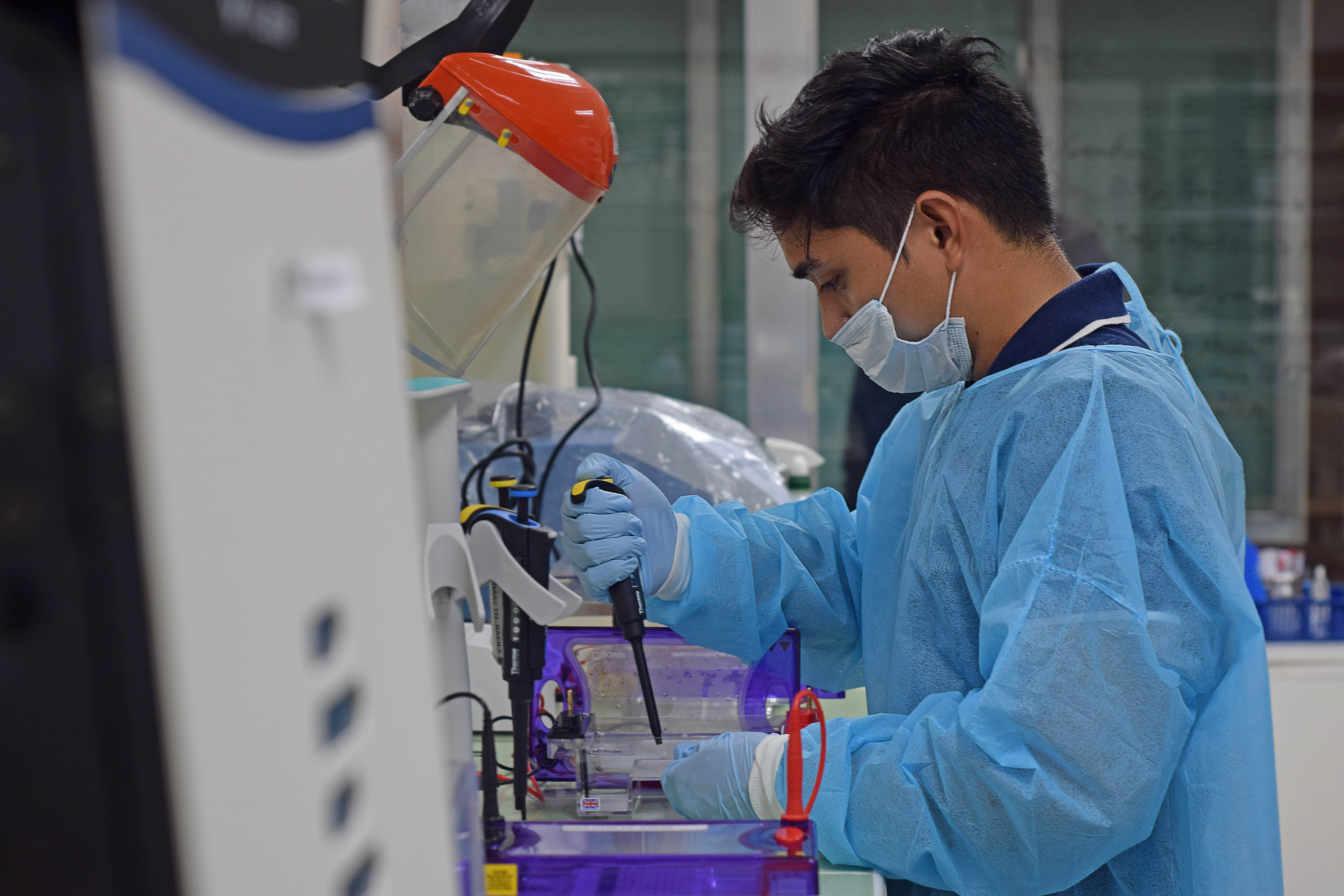
Omics: Unraveling Mindanao’s DNA
Scientific research in Mindanao took a big leap last February as the Philippine Genome Center (PGC), a research center of the University of the Philippines (UP) System based in Diliman, Quezon City, established its first satellite facility in the island region.
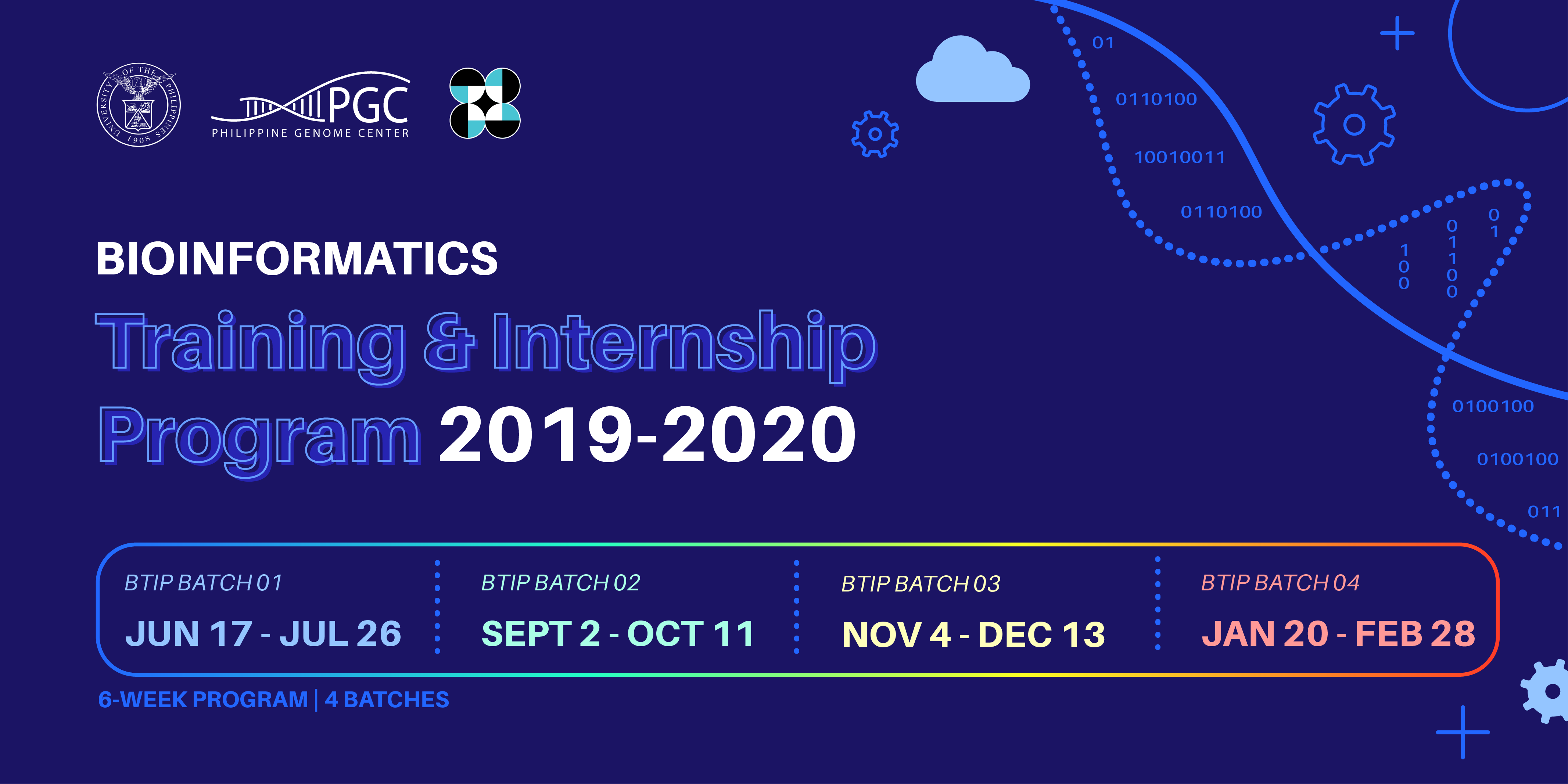
Application Deadline for 2nd, 3rd and 4th Batch of the Bioinformatics Training and Internship Program 2019-2020
The program extends to four (4) batches which will be held throughout 2019-2020. The training of the first batch will run from June 17-July 26 , 2019.

